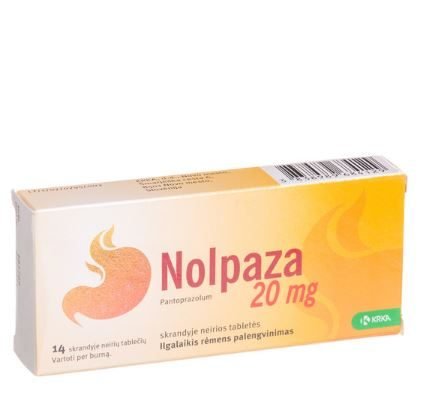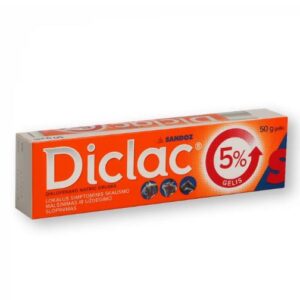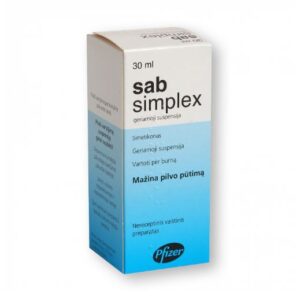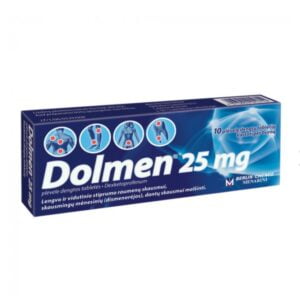Nolpaza belongs to the group of medicines called proton pump inhibitors (PPI). It blocks the proton pump in gastric parietal cells, and thereby reduces the secretion of gastric acid. Because of this effect, this medicine is used in the treatment of the following conditions:
- Treatment and prevention of ulcers in the stomach or duodenum
- Treatment of gastroesophageal reflux disease (GERD)
- Treatment of Zollinger-Ellison syndrome
You will also need to change your diet and lifestyle:
- Stop smoking
- Avoid alcoholic beverages
- Avoid stress
- Make sure you have more smaller meals during the day
- When you sleep, tilt the head of your bed upward to raise your head
- Eat a lot of milk products
Nolpaza Precautions
It cannot be used if you are allergic to Nolpaza or other similar medicines such as:
- omeprazole,
- esomeprazole and others.
Allergy symptoms are:
- itching,
- redness,
- swelling of the face,
- swelling of the tongue,
- difficulty breathing. If you experience any symptom of allergy, contact your doctor immediately.
It can be used only with great caution in patients with liver damage as well as in patients using non-steroidal anti-inflammatory medicines such as:
- ibuprofen (Brufen),
- diclofenac (Diklofen),
- indomethacin,
- meloxicam (Movalis),
- celecoxib,
- rofecoxib and others.
It is very important before using this drug, to exclude cancer as a possible diagnosis, because Nolpaza may mask the cancer symptoms. If you experience these symptoms, contact your doctor immediately:
- painful swallowing,
- blood in the stool (dark stool),
- vomiting which may be accompanied with blood,
- weakness.
Nolpaza rarely may lead to vitamin B12 deficiency and anemia. Tell your doctor if you have or have ever had anemia.
This drug may reduce the level of magnesium in the blood and lead to hypomagnesaemia. Consult your doctor if you experience numbness or heart disorders (such as rapid heart beat), because these symptoms occur in hypomagnesaemia.
If used for a long time Nolpaza may lead to bone damage and therfore increases the risk of bone fractures. Tell your doctor if you have/had any bone disease (e.g. osteoporosis).
Use during pregnancy and breast feeding
It should be used during pregnancy only if the benefit to the mother outweighs the risk to the child. Nolpaza can pass into breast milk. Avoid breast-feeding while using this medication.
Nolpaza Use and Dose
It should be used in the morning, after getting up, with a glass of lukewarm water. Do not crush the tablet but swallow it whole. After you take a pill, you should not eat breakfast the next half hour.
The usual dose in patients older than 12 years is Nolpaza 20 mg once a day (first thing in the morning). Dose may be increased in severe conditions.
How long will you use this medicine, depends on the severity of the condition. Your doctor will tell you how long you need to use it.
Use with other medicines (Interactions)
Nolpaza cannot be used in combination with the following medicines:
- Anticoagulants, used in the treatment of thrombosis, such as:
- warfarin (Farin),
- acenocoumarol (Sintrom, Sinkum 4).
- Digoxin, used in the therapy of heart failure
- Medicines used in the treatment of fungal infections such as:
- itraconazole,
- fluconazole,
- ketoconazole.
- Antibiotics such as:
- ampicillin,
- amoxicillin,
- rifampicin.
- Medicines used in the treatment of AIDS (HIV)
- Methotrexate, used to treat breast cancer
- St. John’s Wort
Tell your doctor about all medications and herbal medicines you are taking.
Nolpaza side effects
Nolpaza may cause the following side effects:
- nausea,
- vomiting,
- diarrhea (which may be accompanied by blood),
- bloating,
- abdominal pain,
- dry mouth,
- flu-like symptoms (sore throat, fever),
- hallucinations,
- muscle pain,
- headache,
- flushing,
- dizziness,
- liver damage (which is manifested by the appearance of jaundice-yellowing of the skin and eyes),
- anemia,
- allergy and others.
If you experience any side effect, contact your doctor.




Reviews
There are no reviews yet.